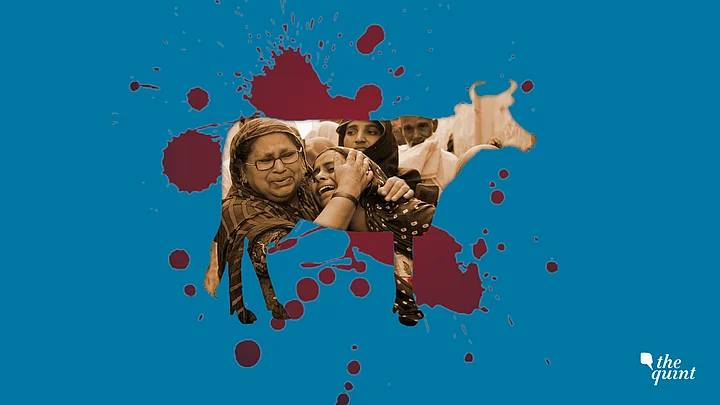As an Indian living and teaching abroad for the past few years, I have been constantly confronted with uncomfortable questions, none more so than those related to mob-lynching – especially of Muslims in India. These incidents have gained unprecedented notoriety since the coming to power of the right-wing Modi government in 2014.
Decoding ‘Culture of Lynching’ for Foreign Students
For someone who engages regularly with questions of religion, caste and gender, the utter helplessness of witnessing the rapid degeneration of a nation built on the principles of democracy, equality and secularism is reflected in uncannily terrifying ways in my lectures and class discussions.
My students – most of them from different parts of Europe and North America – express surprise at first, and then lapse into a dangerously simplistic assessment of post-colonial realities in India and its neighbouring states.
The surprise is a result of the Orientalist positioning of the Western outlook on the Indian subcontinent, its culture and society. I fear often that my rendition of the contemporary political realities of India – in a Western setting – might acquire simplistic undertones. The fearsome regularity with which incidents of deliberate targeting of minorities have occurred since 2014 does not do my predicament any favours.
How can I possibly capture in its entirety the explanation to why Akhlaq was lynched for keeping meat in his refrigerator to a group of students, who receive this piece of information with a smirk, unable to fathom this seeming distaste for meat? What could provide an answer to why a young Muslim man (Junaid) was harassed for sporting a beard and eventually stabbed to death in a train? Is it feasible to rationally narrate the story of the brutal lynching of a meat trader in Uttar Pradesh without eliciting bewildered eyerolls from students?
Roots of ‘Lynching Culture’
It has become increasingly difficult to tell these stories to a group of young people without leaving ground for uninformed perspectives to gain space or even answer questions coming from curious minds. The crux of the matter remains the impunity enjoyed by these lynch-mobs, composed primarily of men of all age groups, brought together by rumours floated on social media and platforms like WhatsApp.
Too busy to read? Listen to it instead.
The recent felicitation by Union Minister Jayant Sinha, of a group of right-wing extremists convicted of lynching, is the nadir of a socio-political trend that seems in no hurry of abating.
The noxious turn that India is taking can be traced back to the pre-Independence cow protection movement which led to the first ever communal riot in India. Pockets of hatred were created, as Hindus were prohibited from selling cows – even old and infirm ones – to Muslims, as the community began to be portrayed as a threat to ‘Hindu’ India and its religious symbols such as the cow. The demonisation continued with the Hindi-Urdu controversy which further exacerbated the schism between the majority Hindus and the principal minority – the Muslims. Partition followed.
Post-Partition India has relentlessly demanded an oath of loyalty from its Muslim minority – the demand is fastidious, yet ubiquitous.
Be it a cricket match or a terror attack, the Muslims remain at the receiving end of obscene queries – most of them deliberate and questionable – about national loyalty and patriotism. While a Hindu is automatically perceived as patriotic, Muslims in general have to go that extra mile to prove their loyalty to India. These stories from India’s chequered history have dotted the landscape of my expositions of contemporary politics, often simplified, but inevitably true to the incessant attack on the fundamental principles of the modern nation-state, launched by the Hindu nationalists.
Manufacturing of Hate
My work on social media and its complete takeover by the BJP and its affiliates lends credence to the vicious role being played by WhatsApp groups – much of it managed by Hindu extremists – in the generation of lynch-mobs, in a matter of minutes. Not only did the BJP consider their presence on mainstream media to be curtailed and inadequate in the run-up to the 2014 elections, they accused TV media of being intrinsically biased. However, what we witness today in TV studios points to the contrary. The ‘manufacturing’ of television news content has never been more pronounced. News anchors are the new ‘news makers’.
From WhatsApp to TV studios, an ideological takeover is in the works; it is mammoth and seems (temporarily) irreversible.
Dissidents are threatened openly as chest-thumping videos overflowing with hate and prejudice are circulated on social media and messaging applications. Public anger – manufactured on TV – is mobilized through WhatsApp, resulting in blood-thirsty mobs baying for the blood of the ‘other’. The mob that lynched meat trader Mohammad Qasim in Uttar Pradesh’s Hapur city, consisted of boys as young as fourteen. A vicious cycle has been set in motion – it all begins from the manufacture of anger and resentment against Muslims in the TV studios, is followed by the circulation of fake videos and news snippets via messaging platforms, and culminates in the quick takeover of the street by mass-produced mobs.
Stories like these are unpalatable, are difficult to tell, and often lapse into the realm of oversimplification.
On-ground reality is far grimmer, more demanding of critical engagement. As a scholar of culture and politics, the prisoner’s dilemma does not leave anyone unscathed. While I still struggle to cope with the regularity with which incidents of mob lynching are taking place in India, the making of ‘Lynchistan’ is complete.
(Roshni Sengupta, PhD, is a political scientist and commentator. She is currently a research fellow with the International Institute for Asian Studies, The Netherlands. She tweets @RoshniSengupta7. This is an opinion piece and the views expressed are the author’s own. The Quint neither endorses nor is responsible for them.)
